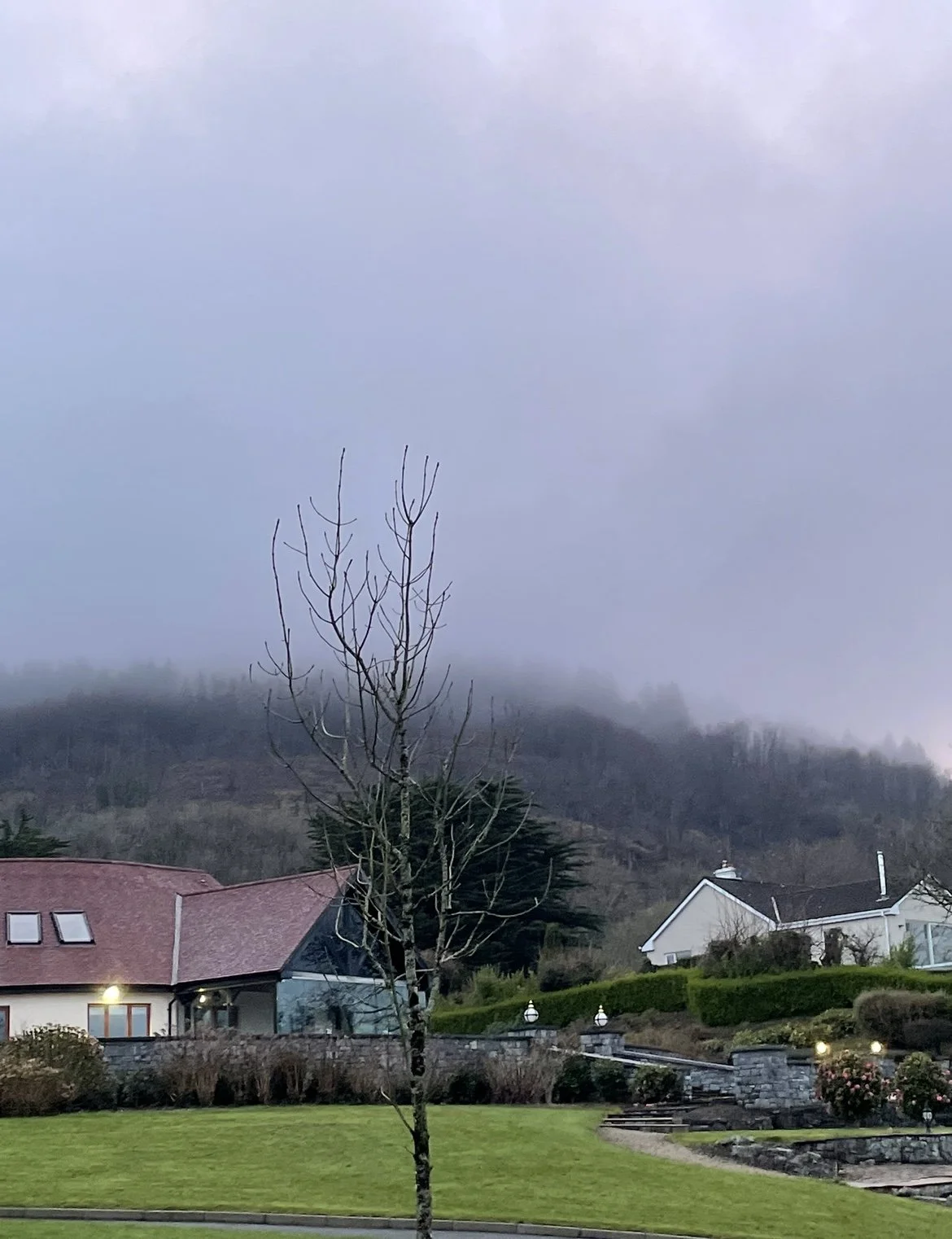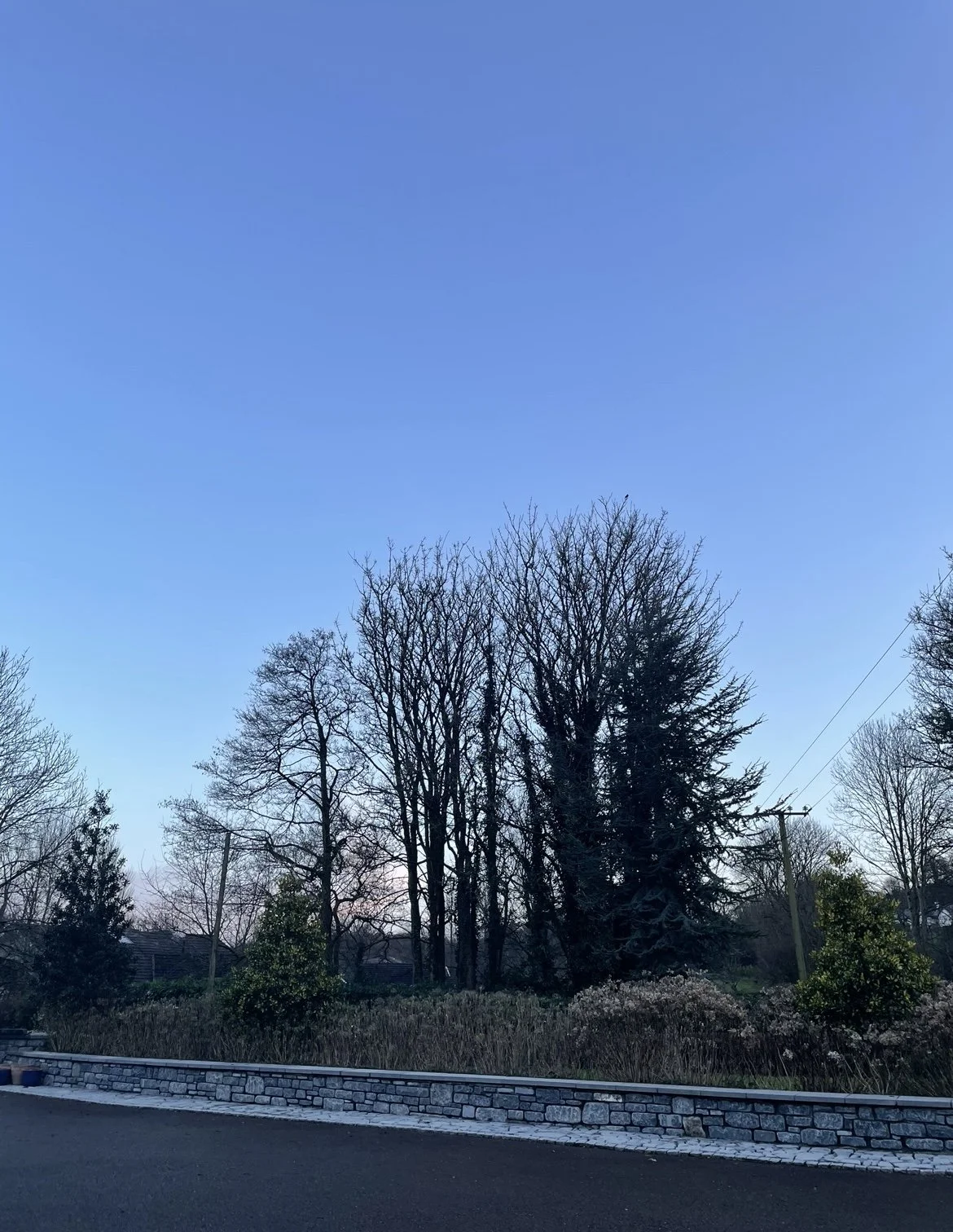Homesick in Your Twenties
By Sarah O’Connell
Streams of Consciousness - Column 4
Something I’ve noticed in recent years is my newfound appreciation for family and my home. Gone are the days of being a sulky teenager, of being an excitable first year undergrad who always wanted to get back to college as soon as possible. I still love college life, being a postgrad even more so, but I’ve noticed such a huge increase in my appreciation for going home. I look back on the years of being a moody teenager and wonder how I didn’t appreciate my parents. While this doesn’t appear to be any sort of negative realisation, if anything a mature one, I question whether this feeling goes past appreciation and becomes a form of homesickness.
As a teenager, I was never homesick. I enjoyed school trips, didn’t miss home, not because I didn’t like home, but because it just felt okay. I felt an ability to cope with being away, and it didn’t create any emotional turmoil as I know it did with other teenagers I knew. But now, I find myself having the urge to go home to seek comfort, at the sight of any minor inconvenience. I look forward to going home, to shutting off my social battery, to being able to just breathe. But why do I feel embarrassed, almost, at feeling this way? I have this notion that it’s not socially acceptable to be homesick as an adult. Logically, of course, I know this is silly. You can feel homesick at any age, miss your family at any time, but in the back of my head I’m still judging myself against some standard of maturity I deem acceptable.
I question whether this homesickness has worsened since the pandemic. It makes sense, nearly two years of daily covid case numbers, death counts, fearfully reading about what new strain was coming next. It was a time when we worried about our families’ lives, so it only follows that you would gain a greater appreciation for them. As well, the times in lockdown two, where students were trapped in their student accommodation, unable to go home even if they wanted to. Of course, when you’re told you can’t do something, all this does is make you want to do it even more. Combining this with the poor mental health that went along with increased isolation with little to no reprieve, it makes sense how this created a sort of ‘adult homesickness’.
But now, the pandemic is in some effect over, Covid still existing, but society has told us it is time to move on. But, this feeling of homesickness, of anxiety, of fear remains. Despite the cause of this feeling not being a factor anymore, the homesickness remains. I find myself running home for comfort, at any sign of emotional distress. While this isn’t the worst coping mechanism, I feel I’ve lost my sense of resilience. I feel comforted seeking comfort for homesickness, yet also feel immature and embarrassed. I feel this is not the correct way to handle stress as a twenty-two-year-old young adult. But is this a result of how often people in their twenties judge themselves based on an impossible standard? The belief that we must have it all figured out, when the reality is that your twenties can be the most turbulent, confusing times.
The need to socialise, knowing this is the time when friendships can be lost on conflicting schedules and ‘adult life’ getting in the way. The need to know exactly what career path you wish to go down. The anxiety that you’re not as accomplished as other people your age. The fear that you simply don’t know what you are doing. All these things combined, as well as a hundred others, are part of what makes the twenties so difficult, where the need for resiliency is highlighted. So maybe we seek that feeling of comfort, of acceptance, of calmness that can hopefully be achieved by leaving your adult life, and mentally travelling back to your childhood one. Perhaps, seeking comfort in home, is a way to cope with the trials and tribulations of adulthood. It’s looking back on a time where you had little responsibilities and less worries. This anxiety or homesickness manifests in an urge for escapism.
When I go home I know the only people around me are family, those whose judgment I can stomach, as there exists that assumption of unconditional love.
For me, this escapism is also linked to the constant need to be performing, the need to be pleasant, the need to be likeable, the need to be smart, the need to be competent. When you have a critical inner voice, you tend to feel exhausted by social interaction. The second you leave a social situation, you’re questioning every little thing you said, fearful that you will be interpreted as mean, stupid, rude, and worse. While the only person who places this high standard onto me is myself, it does not negate the feelings that it evokes. It is this that has me questioning, do I really enjoy my solitude? Or am I simply feeling a sense of relief when I don’t have to ‘perform’ at this idealistic standard of behaviour that I set for myself.
Perhaps, this explains the sense of calmness when I go home, when I know the only people around me are family, those whose judgment I can stomach, as there exists that assumption of unconditional love. Perhaps this isn’t homesickness at all, but a need to not be judged, to not feel drained, to be able to take a breath. Of course, I am the one putting myself up to this impossible model of behaviour, no one else, but nonetheless it is there. So maybe instead of seeking the comfort of home, I simply must learn how to calm my inner critic, learn to have a kinder inner voice, so that I don’t feel this immense pressure that leads to a perpetually drained social battery.



